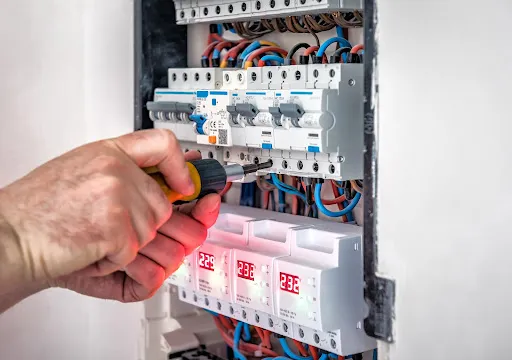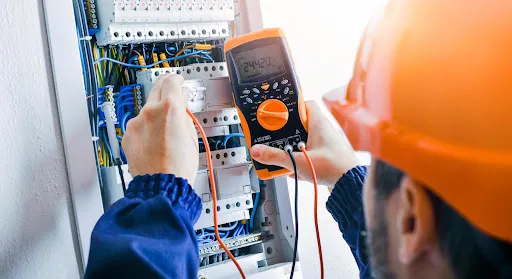In a world that thrives on electricity, the role of a licensed electrician is both vital and versatile. Electrical systems are the lifeblood of modern living, powering our homes, businesses, industries, and innovations. However, ensuring the safe installation, maintenance, and repair of these systems requires expertise and precision, all of which a licensed electrician brings to the table. In this comprehensive article, we will delve into the realm of licensed electricians, exploring their significance, the process of becoming licensed, the services they provide, and the impact they have on the safety and functionality of our spaces.
Table of Contents
The Importance of Licensing in the Electrical Industry
- Ensuring Competency and Expertise:Licensing is a testament to an electrician’s knowledge, skills, and proficiency in their field. It assures clients and employers that the electrician is adequately trained and possesses the necessary expertise to handle electrical work safely and effectively.
- Enhancing Safety Standards:A licensed electrician adheres to strict safety standards and codes, minimizing the risk of accidents, electrical fires, and potential hazards. This, in turn, contributes to a safer environment for both the electrician and the occupants of the space.
- Legal Compliance and Accountability:Licensing ensures that electricians comply with local laws and regulations related to electrical work. It provides a legal framework, making the electrician accountable for their actions and work quality.
- Consumer Protection:Licensing provides a level of protection for consumers. It gives them confidence that the electrician they hire is qualified and accountable for the work performed, promoting trust and reliability.
The Journey to Becoming a Licensed Electrician
- Education and Training:The path to becoming a licensed electrician typically starts with a high school diploma or equivalent. Some choose to pursue formal education in electrical studies through community colleges or trade schools.
- Apprenticeship:Apprenticeship is a crucial phase in an aspiring electrician’s journey. Under the guidance of experienced electricians, apprentices gain hands-on experience, learning about electrical systems, safety protocols, and practical applications.
- Formal Training Programs:Some jurisdictions require completion of a formal electrical training program. These programs often include classroom education combined with practical training to prepare individuals for licensing exams.
- Licensing Exams:The final step involves passing licensing exams, which assess an individual’s understanding of electrical concepts, safety regulations, and local building codes. These exams vary based on the jurisdiction and the level of licensing being pursued.
- Obtaining the License:Once the exams are successfully cleared and any other jurisdiction-specific requirements are met, the aspiring electrician is granted the appropriate license to legally practice electrical work.
Services Provided by Licensed Electricians
- Installation of Electrical Systems:Licensed electricians are responsible for the installation of electrical systems in residential, commercial, and industrial settings. This includes wiring, outlets, switches, lighting fixtures, and more.
- Repairs and Maintenance:Electricians troubleshoot and repair faulty electrical components, ensuring that all systems are functioning correctly. Regular maintenance is also part of their role to prevent potential problems.
- Electrical Upgrades:Electricians provide services to upgrade electrical systems, such as adding new circuits, increasing the capacity of electrical panels, or installing energy-efficient lighting solutions.
- Safety Inspections:Licensed electricians conduct safety inspections to assess the safety and compliance of existing electrical systems, identifying potential hazards and recommending necessary improvements.
- Renewable Energy Installations:With the rise of sustainable energy sources, licensed electricians are involved in installing solar panels, wind turbines, and other renewable energy systems, promoting green energy adoption.
The Impact of Licensed Electricians on Society
- Ensuring Safety and Preventing Accidents:Licensed electricians significantly contribute to public safety by ensuring that electrical systems are installed and maintained in a safe and compliant manner, minimizing the risk of accidents.
- Powering Economic Growth:Electricians play a vital role in supporting industries, businesses, and homes by ensuring a reliable power supply. This uninterrupted power is essential for economic growth and development.
- Enabling Technological Advancements:The continuous growth of technology requires robust electrical systems. Licensed electricians are at the forefront of this advancement, ensuring that the infrastructure can support technological innovations.
Conclusion
A licensed electrician is more than a technician; they are the guardians of a safe and electrified world. Their expertise, honed through education, training, and experience, ensures that our homes are well-lit, our devices are powered, and our industries function seamlessly. Licensing is not just a regulatory requirement; it’s a symbol of trust and assurance that the person handling our electrical systems is a qualified professional. As we continue to evolve in a technologically driven age, the role of licensed electricians becomes even more critical. They are the driving force behind our electrified society, empowering spaces, and ensuring our safety and progress.


